
No good scene goes off without a hitch.
As a huge fan, let me tell you, when you have someone as incredible as Cynthia Erivo singing “No Good Deed” in Wicked: For Good, you just have to let her shine! That’s why I was so thrilled to hear that director Jon M. Chu changed things during filming. Originally, they planned to have Elphaba moving at the beginning of the song, which would have meant Cynthia had to detach from her harness while they were filming! He smartly decided against that, and it was the right call – it’s all about letting her performance breathe.
Jon recounted to Entertainment Weekly that she performed several takes, but at one point said she didn’t want to completely reset and start over. She preferred to keep going from where she was, even if it felt a bit chaotic. Jon explained that the final, ‘messy’ take was the one they used because the camera operator wasn’t prepared for the spontaneous decision. He admitted he’d forgotten to give them a heads-up.
Ultimately, Jon found the stillness to be even more moving.
He remembered watching her sing by herself in an empty room during filming. He said there was nothing else happening around her – she was completely captivating and creating the entire moment, which he thought was amazing.
What looks like a raw or unpolished performance to someone like Jon actually comes across as incredibly powerful for the audience. Cynthia, while remaining still, deeply conveys Elphaba’s emotions, struggles, and the unfair treatment she’s experienced through her singing.
Even though it was a huge challenge to make all of that happen, the director of Crazy Rich Asians always believed Cynthia could pull it off—she’d proven herself capable in the past.
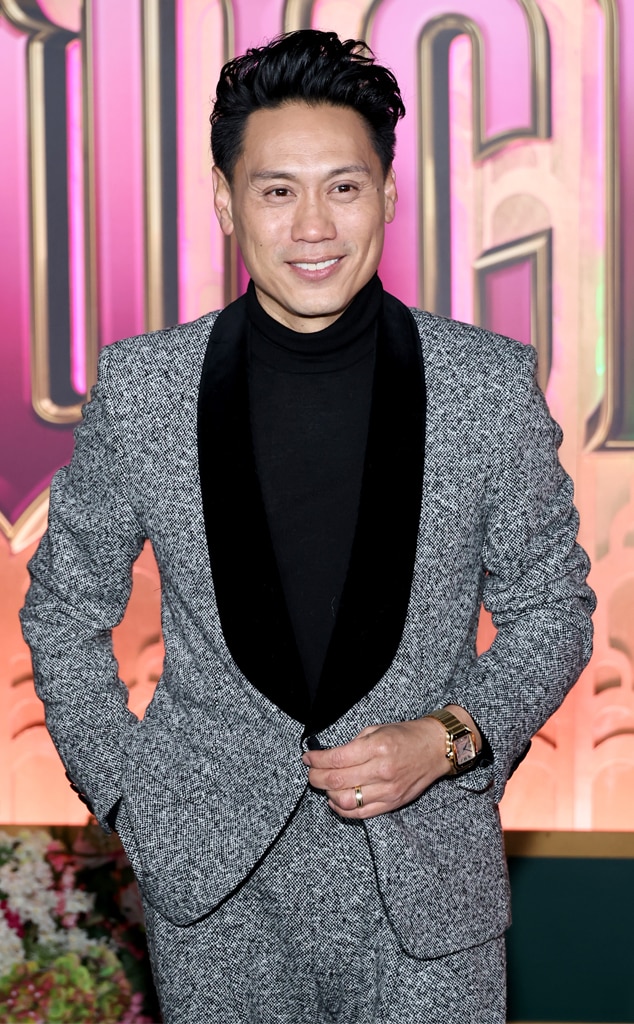
After the movie came out, Cynthia told Today that the scene where she and her co-star confessed their love at the door wasn’t planned. She explained that those heartfelt lines were something they discovered and created together organically during filming.
For Cynthia, Jon’s decision to let her and Ariana simply explore made all the difference.
We were both just trying to find the right way for our characters to say goodbye,” she explained. “Even while recording the song, there wasn’t a lot of instruction. He just allowed us to sing directly to each other, to be honest and share our true feelings.
Jon pointed out that while they were familiar with the actress’s abilities from her performance in ‘Defying Gravity,’ ‘No Good Deed’ was different. It wasn’t just a statement of intent, but a difficult journey of self-discovery for the character, Elphaba. He described it as Elphaba finally accepting who she is, even though that acceptance is filled with pain and regret, and forces her to confront her history.
He believes this is one of the most incredible musical performances ever filmed, calling the actress’s work truly outstanding.
Often, the most powerful scenes in a movie aren’t planned—they happen spontaneously. A great example is the heartfelt goodbye between Cynthia and Ariana Grande during the song “For Good.” (Be warned, there are spoilers!) In that scene, Elphaba and Glinda both confess their love for each other and then cry on opposite sides of a door.
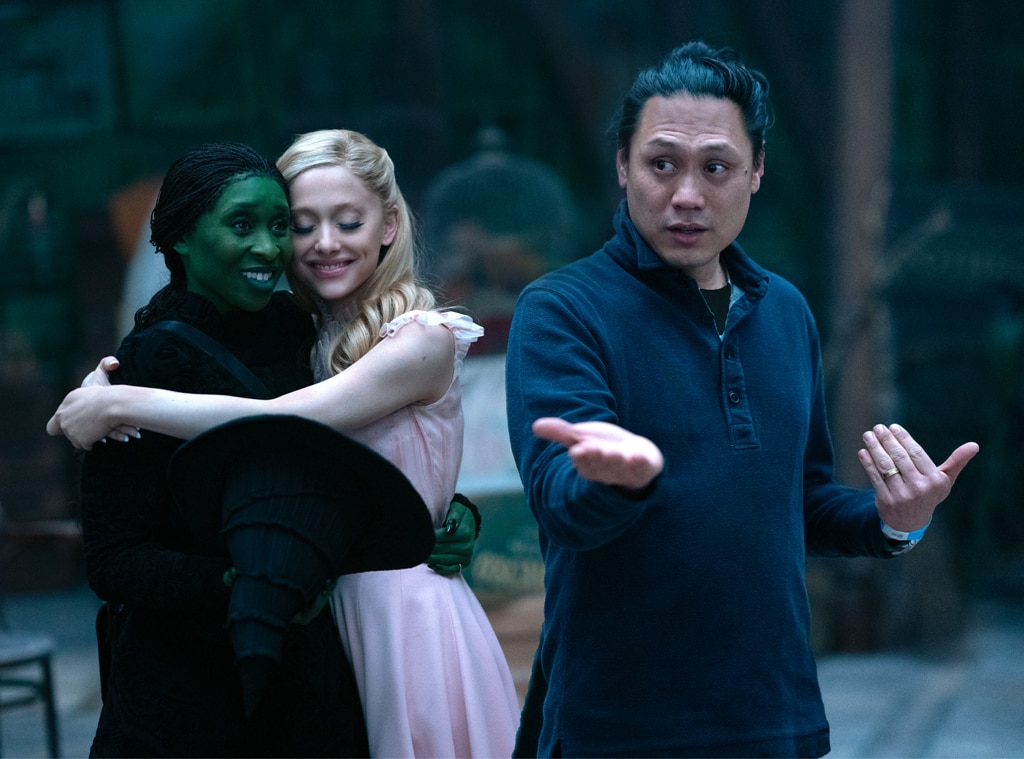
After the movie came out, Cynthia told Today that the scene where she and her co-star confessed their love at the door wasn’t planned. She explained that it was a spontaneous moment they created together while filming.
For Cynthia, Jon’s decision to let her and Ariana simply explore made all the difference.
We were both just trying to find the right way for our characters to say goodbye,” she explained. “Even while recording the song, there wasn’t a lot of guidance. He just let us sing directly to each other and be honest with what we wanted to say.
That emotional scene was just one small difference between the movie and the play. Keep reading for a complete list of all the changes.
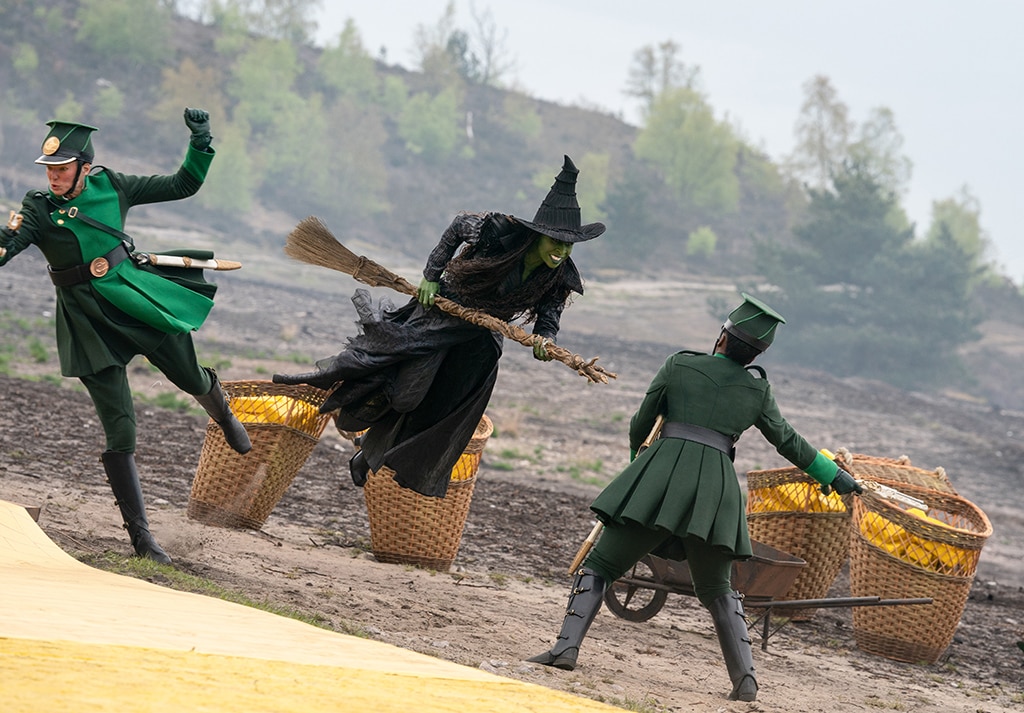
The movie Wicked: For Good starts right after the first film ended, with Elphaba (played by Cynthia Erivo) flying off to use her powers and rescue the talking animals of Oz. The story opens with Elphaba actively working to stop the construction of the Yellow Brick Road and free the captured animals.
The film also includes a new song called “Every Day More Wicked,” which is a longer version of the song heard at the beginning. In it, the main actors, including Glinda (Ariana Grande) and Madame Morrible (Michelle Yeoh), explain how their characters have been attempting to handle the Wicked Witch of the West.
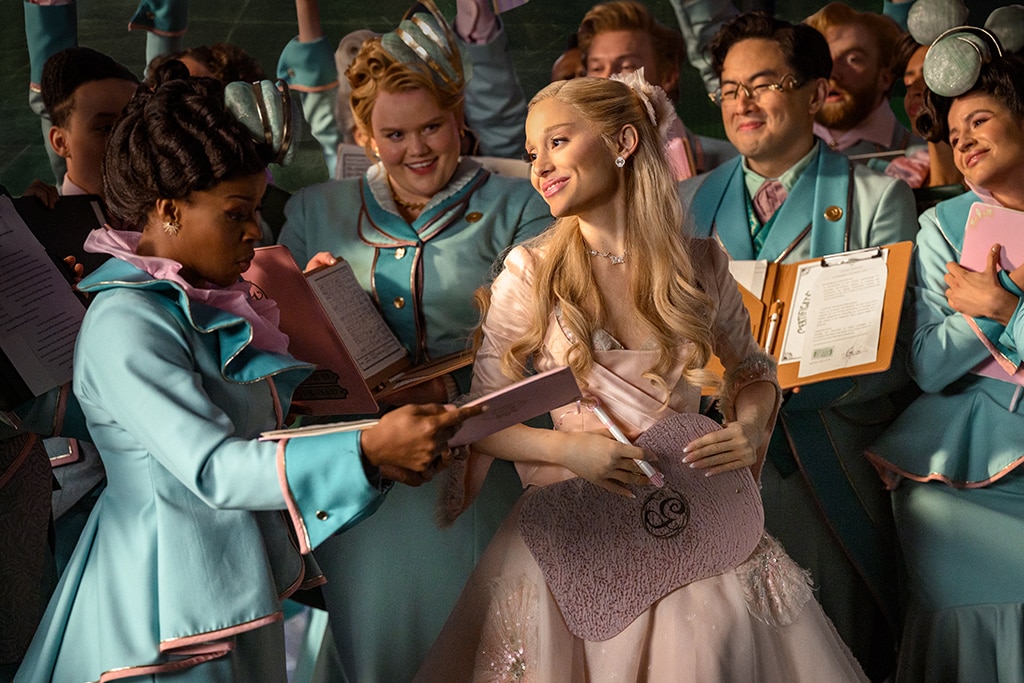
Similar to the stage show, the movie introduces Glinda as the public face of the Wizard of Oz. We see her get her iconic bubble and wand, solidifying her role as the Good Witch. The scene includes a flashback to Glinda as a child, receiving a wand for her birthday and experimenting with her powers. This mirrors a previous flashback of young Elphaba, highlighting the contrast: while people feared Elphaba for using magic, Glinda’s friends celebrated her abilities.
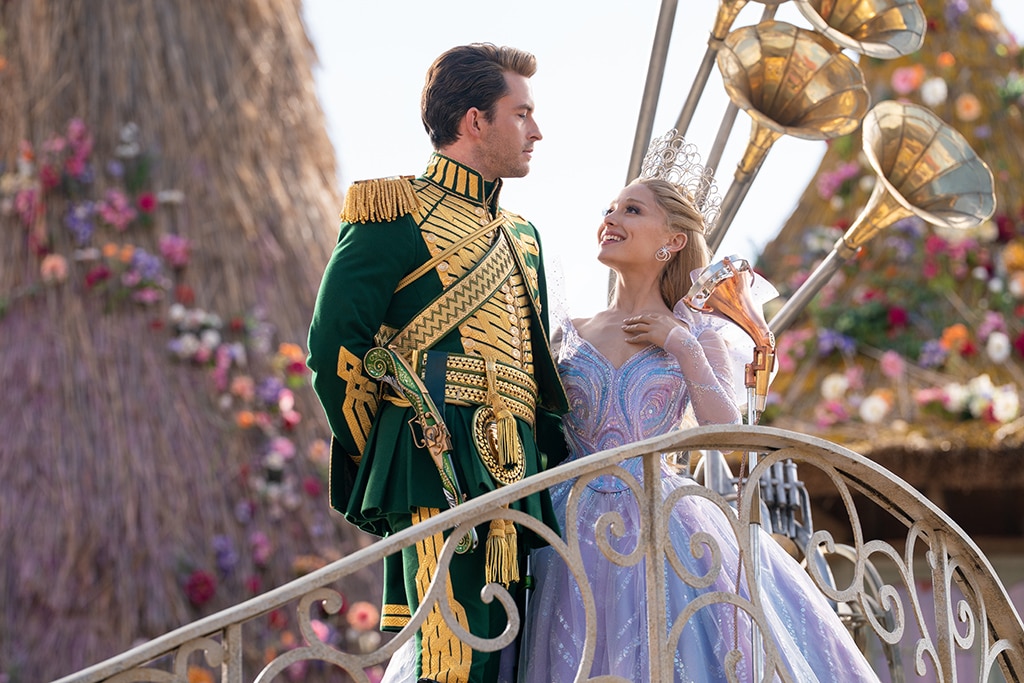
The song “Thank Goodness,” which starts the second act of the stage show, doesn’t appear until later in the movie. In the film, it’s used to celebrate two things: the completion of the Yellow Brick Road and the engagement of Fiyero (played by Jonathan Bailey, who is Captain of the Gale Force in the movie) and Glinda. This differs from the stage version, where Elphaba interrupts the celebration to warn the people of Oz about the Wizard’s wickedness. She uses her broom to write a message in the sky, similar to the Wicked Witch in the original 1939 film, The Wizard of Oz.
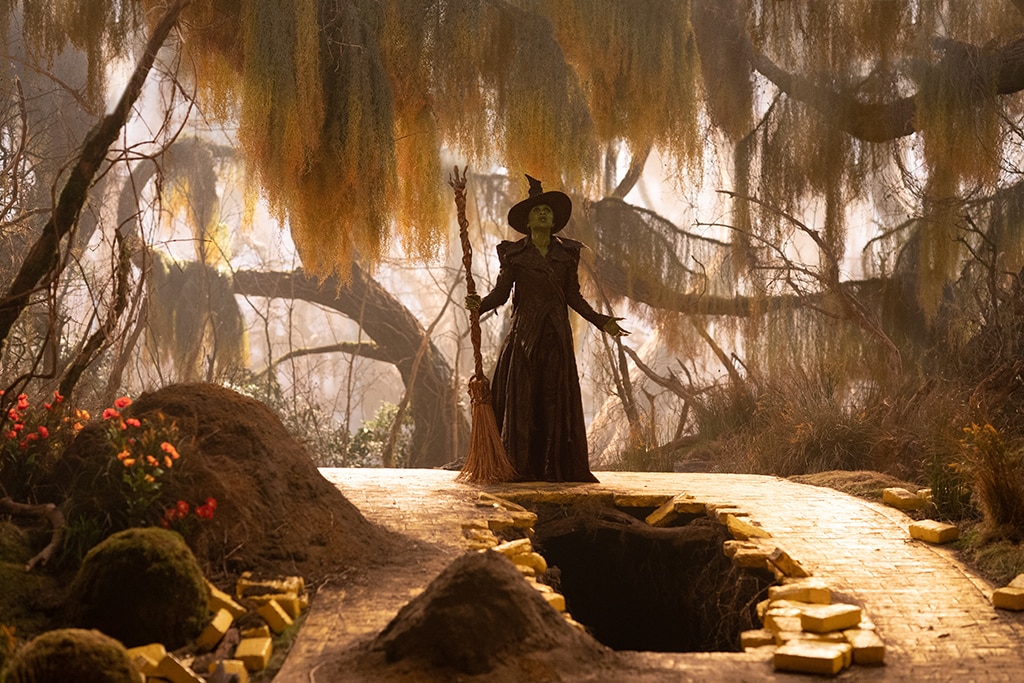
Elphaba shares a heartwarming reunion with Dulcibear (Sharon D. Clarke) while trying to prevent the talking animals from fleeing Oz. During this scene, she performs a new song from the movie, “There’s No Place Like Home,” hoping to inspire the animals by reminding them of Oz’s potential when everyone works together and shows kindness.

As a lifestyle expert, I’ve been following the ‘Wicked’ movie adaptation closely, and I’m thrilled to see they’re giving the Cowardly Lion – played by Colman Domingo – a much bigger story! Unlike the stage show where you mostly just see his tail, the film really delves into his backstory. Apparently, he was the cub Elphaba and Fiyero saved, and now, as a grown lion, he actually confronts Elphaba, letting her know he feels she’s the reason he lacks courage, since she disrupted his original life.
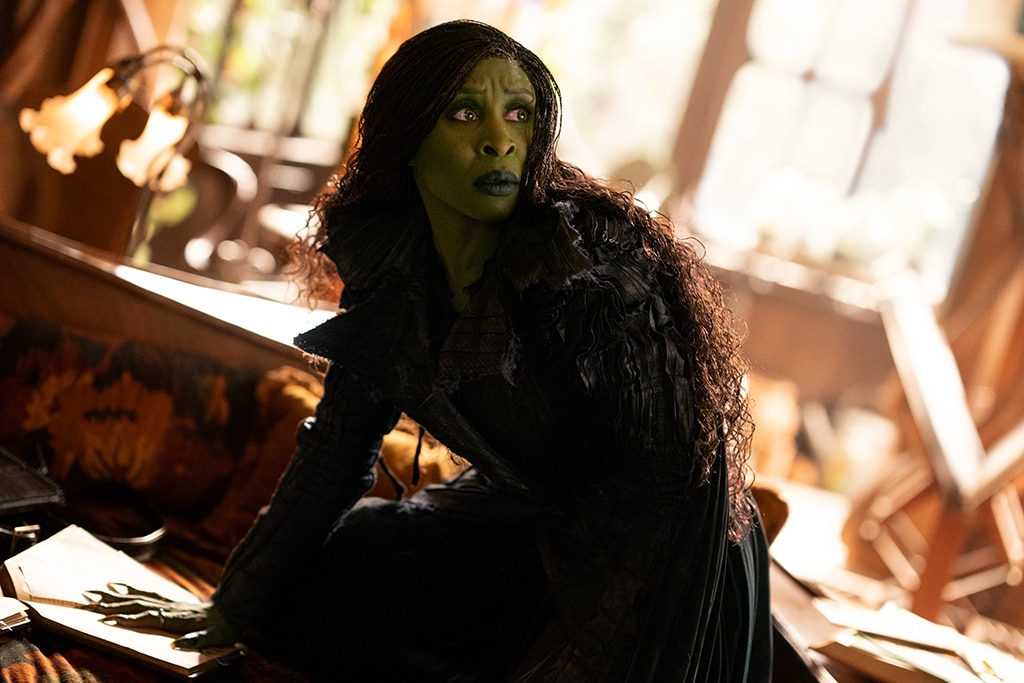
Similar to the stage production, Nessarose (played by Marissa Bode) becomes the governor of Munchkinland after their father, Andy Nyman, passes away. While the movie shows Elphaba already knowing this, the musical reveals it through a conversation with her sister.
Because she’s still in love with Boq (Ethan Slater), she’s kept him as her servant, hoping he’ll eventually reciprocate her feelings. In the film, she tells Boq he’s free to go after Glinda, the woman he loves, but he soon discovers this isn’t true when he tries to leave and finds out Munchkins now require travel permits.
He goes back to see Nessarose just before Elphaba arrives, hoping for her sister’s assistance. A new version of the song “The Wicked Witch of the East” includes Nessarose remembering her time at Shiz and blaming Elphaba for her troubles. In the stage show, Elphaba uses magic on Nessarose’s silver shoes, allowing her to walk again. The movie changes this; instead, Elphaba magically makes Nessarose float, after which she returns to using a wheelchair.
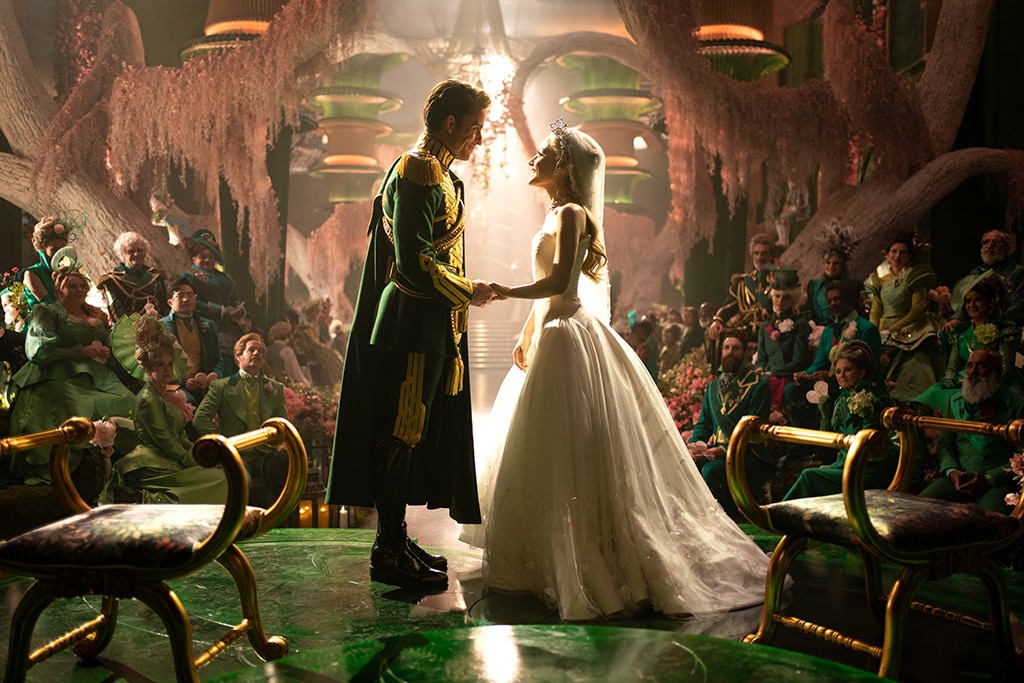
The movie differs from the musical by showing Glinda and Fiyero’s wedding. Right before the wedding, Elphaba arrives in the Emerald City and meets the Wizard (Jeff Goldblum). Both the Wizard and Glinda try to get her to join them, singing a new, extended version of the song “Wonderful” – in the musical, only the Wizard sings this song.
The Wizard reluctantly agrees to release the flying monkeys, but they betray Elphaba by leading her to a secret underground area. There, she discovers the Wizard is imprisoning talking animals, including Doctor Dillamond. Enraged by this discovery, Elphaba frees the animals, and they cause chaos, disrupting Glinda and Fiyero’s wedding before they can exchange vows.
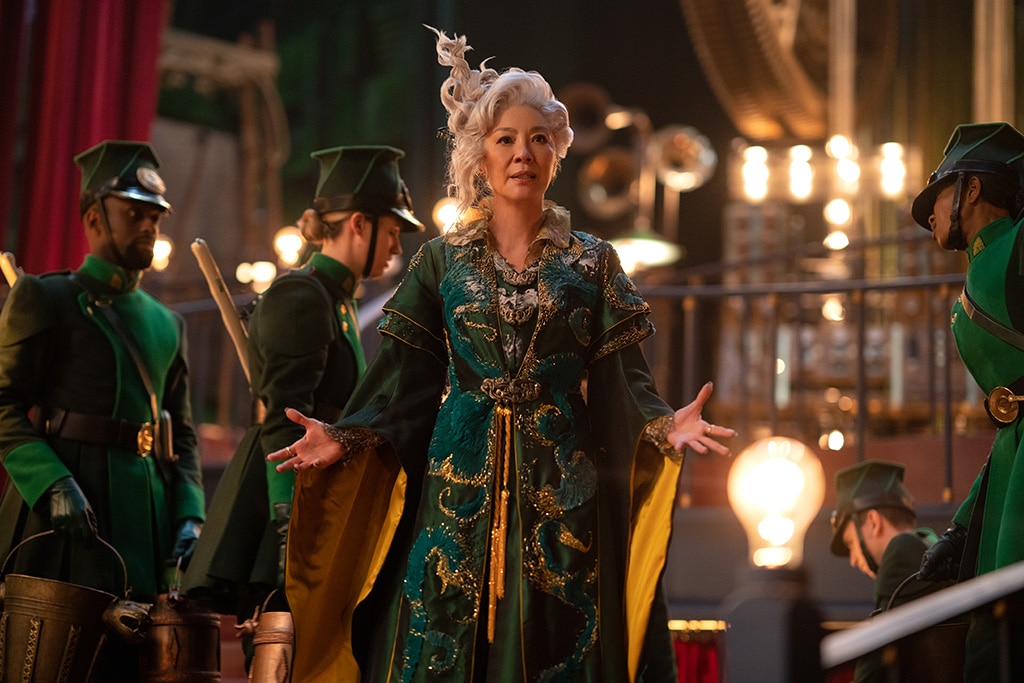
The film shows Madame Morrible creating the cyclone that devastates Oz. We watch as the storm sweeps across the land and ultimately drops a house on Nessarose while she’s searching for Boq.
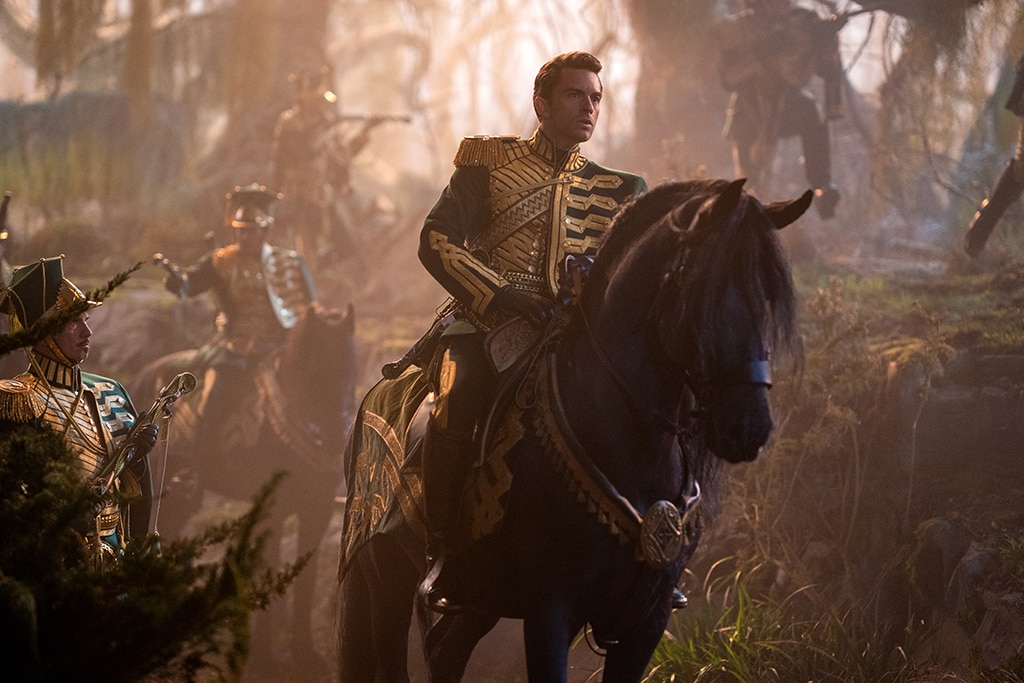
Similar to the stage show, Elphaba transforms Fiyero into the Scarecrow while attempting to rescue him from the guards. This version of the story shows the transformation happening – viewers see straw gradually cover his body.
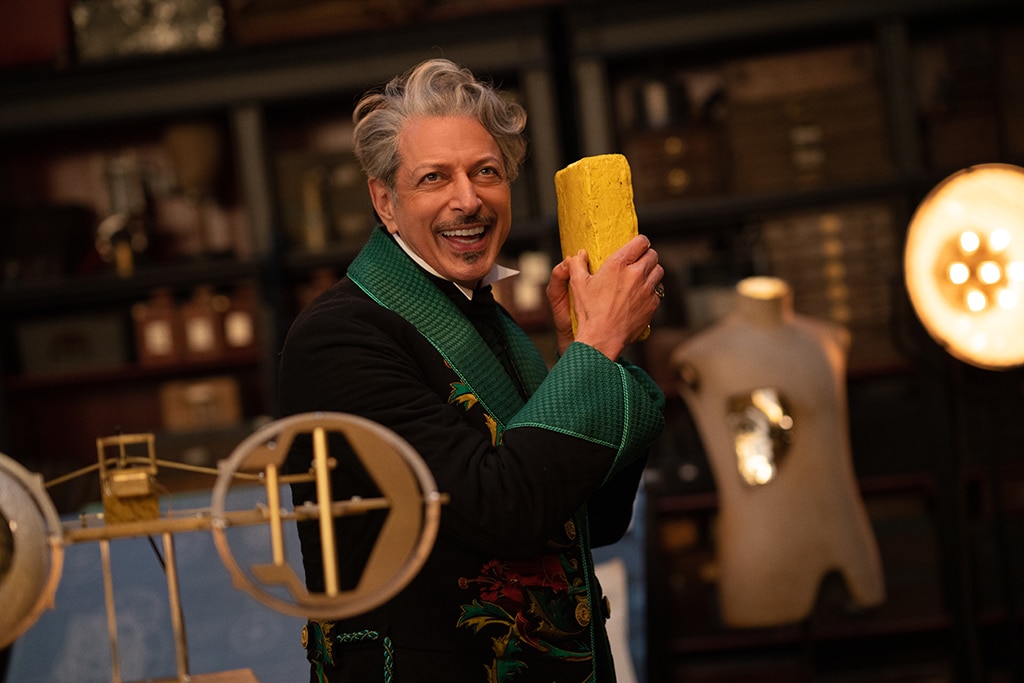
As a lifestyle expert, I’ve always been fascinated by iconic duos, and Dorothy and Toto definitely fit the bill! While the original stage show never actually showed us Dorothy, the movie gives us a lovely, if fleeting, glimpse. We don’t get a clear look at her face, but we do see her and her companions – the Scarecrow, Tin Man, and Cowardly Lion – on their journey to the Emerald City. Their mission, given by the Wizard? To bring him the broom of the Wicked Witch of the West! And in a sweet moment near the end, we actually hear the Kansas girl plead with the Wizard to wait for her, so she can finally go home.
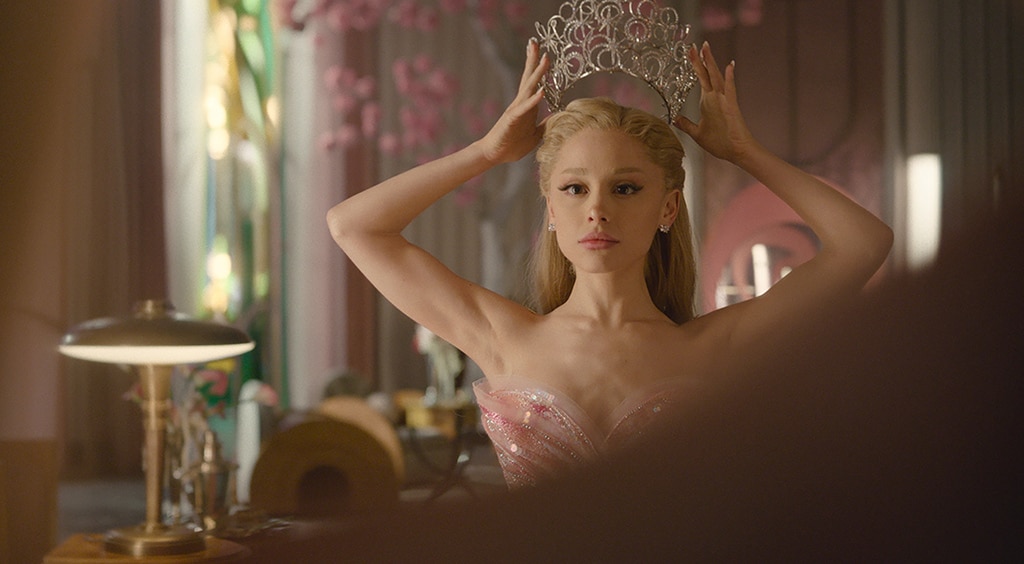
Elphaba isn’t the only one expressing herself through music; Glinda sings about her disappointing life in “The Girl in the Bubble.” This song makes her realize she needs a change, so she leaves the Emerald City to find Elphaba and warn her about the Wizard’s plans.
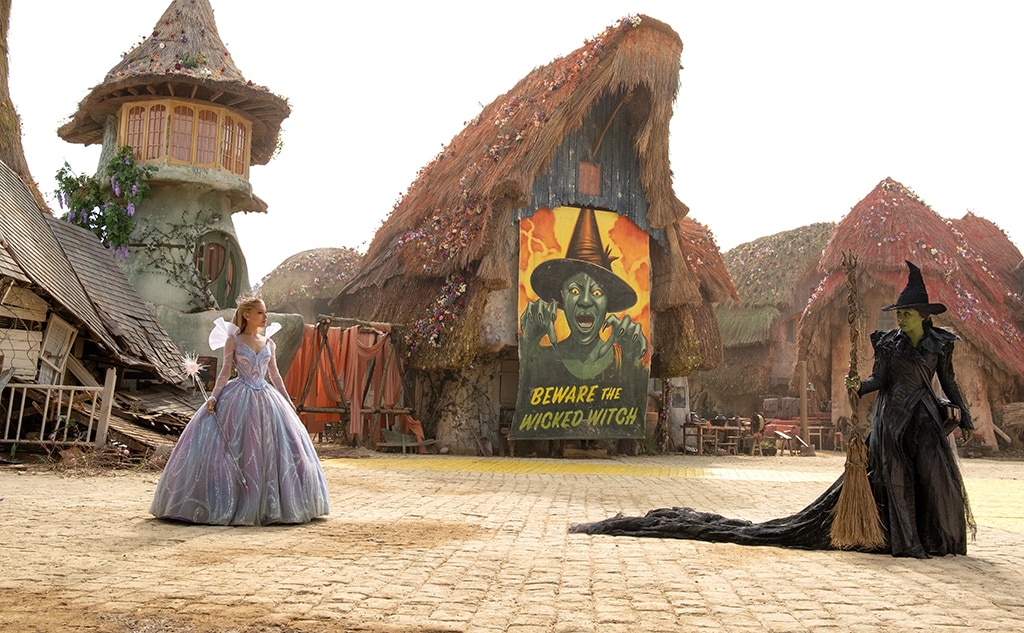
Similar to the stage musical, Elphaba and Fiyero create a plan for everyone to believe she’s died, so they can run away together. However, the movie expands on what happens afterward, showing Doctor Dillamond returning to Shiz University, Glinda beginning to study with the Grimmerie, and Elphaba and Fiyero leaving for a new life beyond Oz. The film also includes a sweet nod to the musical’s famous imagery, ending with a flashback of Glinda and Elphaba posing just like the original poster.
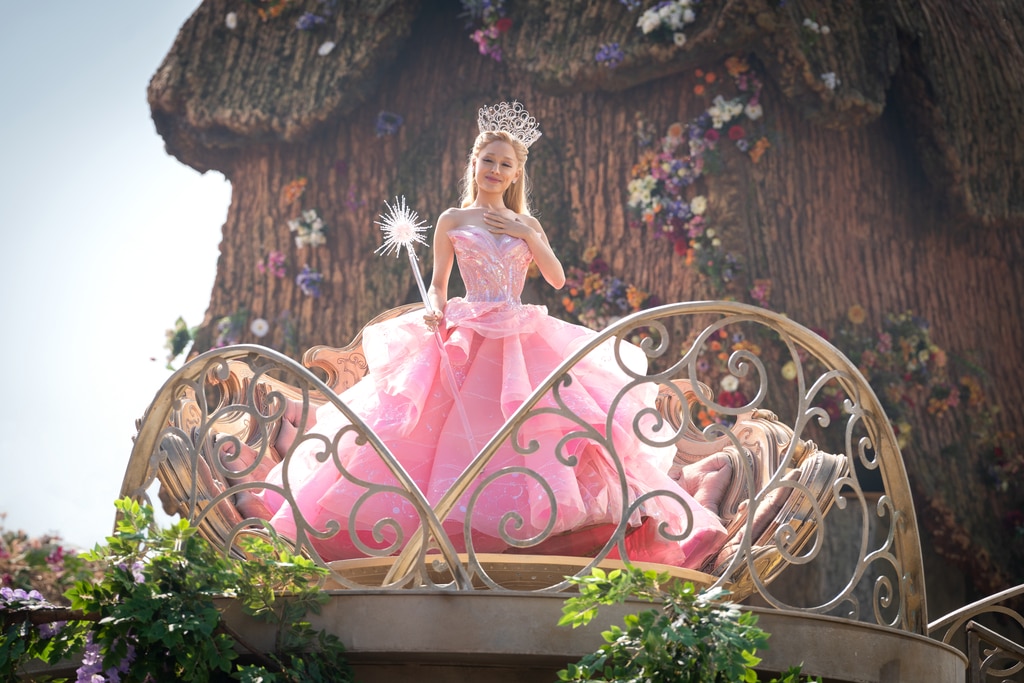
The Time Dragon Clock, a puppet show featured in the novel Wicked, appears at the beginning of the Broadway musical. However, in the movie adaptation, it’s only quickly referenced when Glinda tells the people of Oz that Elphaba has died.
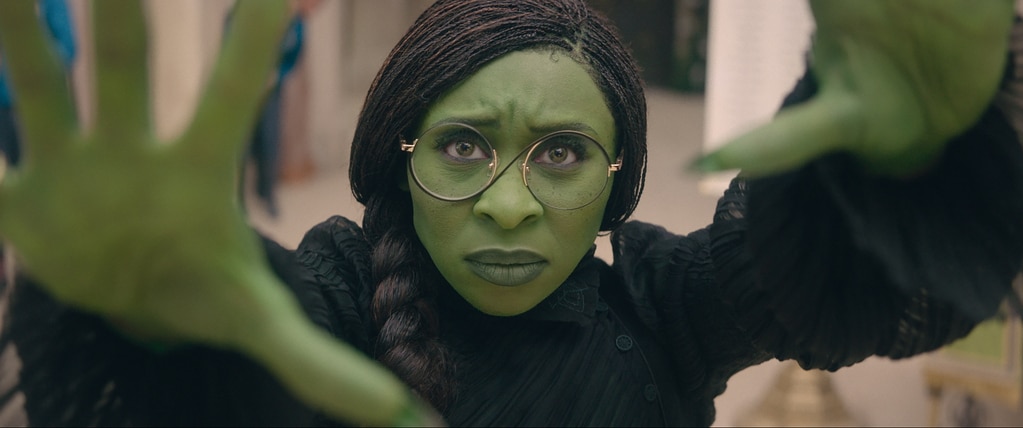
The stage musical only briefly mentions Elphaba’s birth, but the movie shows her childhood, including early signs of her magical abilities. The film also introduces Dulcibear, a talking bear who helps raise Elphaba after her father is shocked by her green skin. Dulcibear’s presence explains Elphaba’s strong connection to animals and her fight against their mistreatment – a key theme in both the movie and the musical.
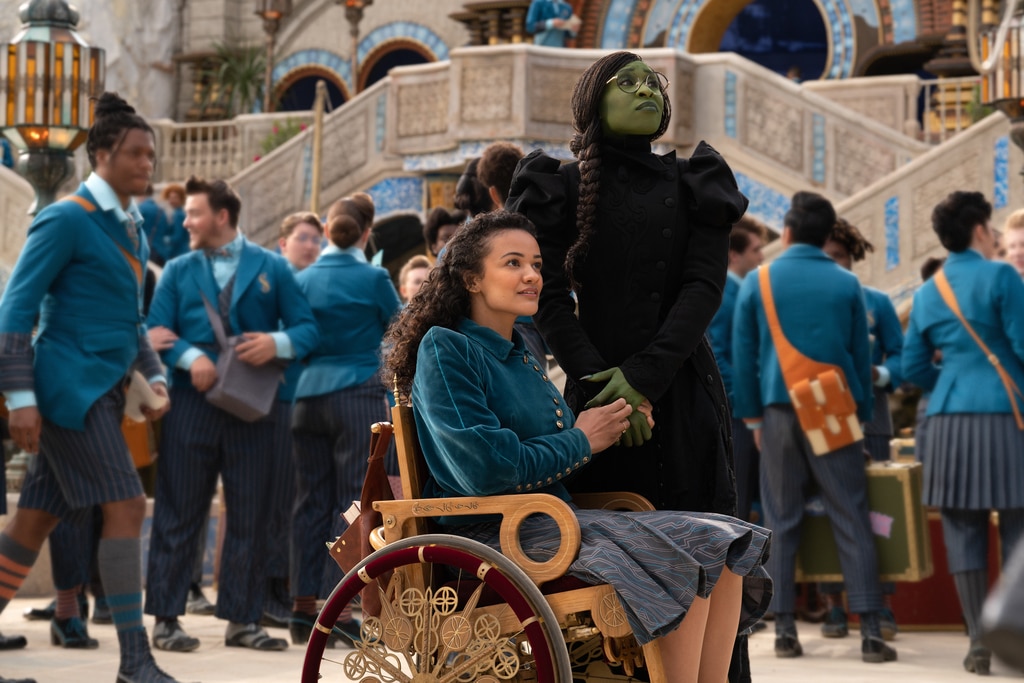
In the Broadway musical, Elphaba is already a student at Shiz University, attending to support her sister, Nessarose. However, in the movie, she only goes to help Nessarose move in. Madame Morrible notices Elphaba’s magical abilities and convinces her to enroll. After that, the story follows a similar path: Glinda ends up accidentally becoming Elphaba’s roommate, and the musical explains this happened because of an administrative oversight.
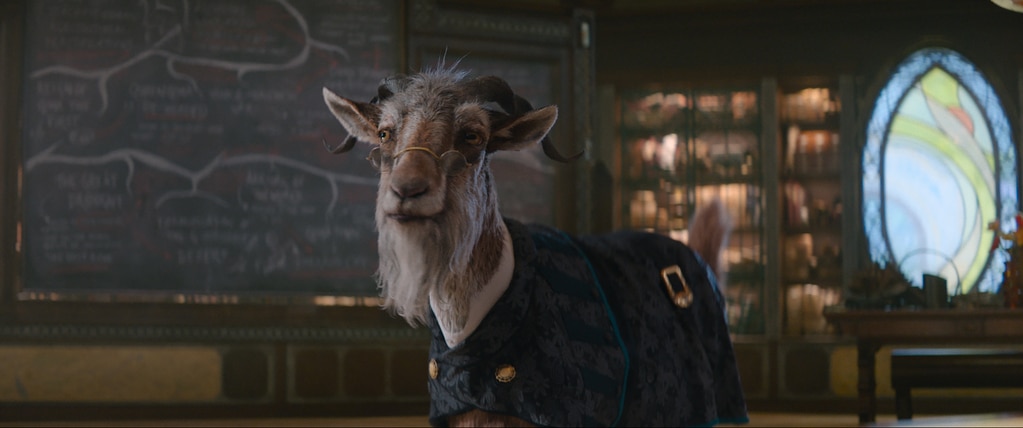
Both the stage and film versions of Wicked feature Doctor Dillamond, a talking goat who teaches history at Shiz University and warns his students about growing dangers to animals in Oz. The movie expands on this by showing other talking animals involved in a resistance group, which aren’t present in the musical. The location of the song “Something Bad” also differs: it’s performed in Doctor Dillamond’s classroom in the musical, but in his home in the movie, with Elphaba joining him.
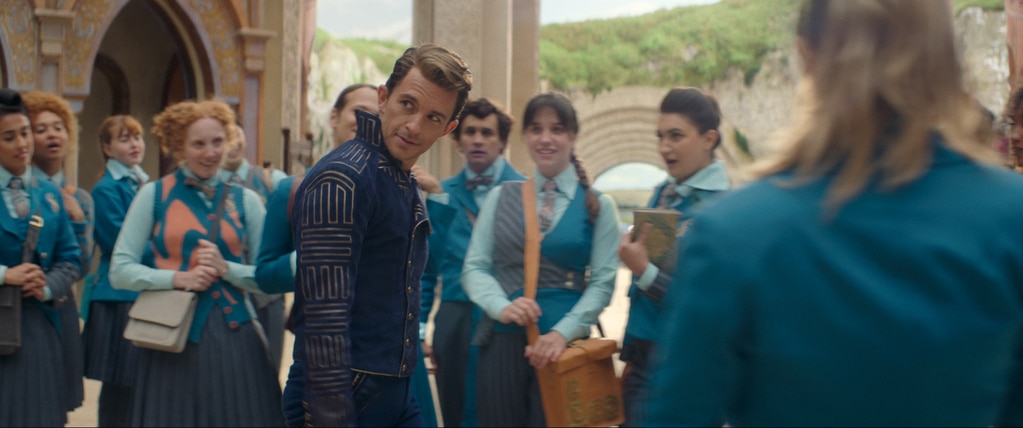
Both the stage musical and the film feature a love triangle involving Glinda, Elphaba, and Fiyero. However, the way Fiyero is introduced and first meets Elphaba is different in each version. In the musical, he nearly runs her over with his carriage after arriving in Shiz. In the movie, he almost tramples her while riding his horse in the woods near the university, and he jokes that she was camouflaged by the surrounding plants.
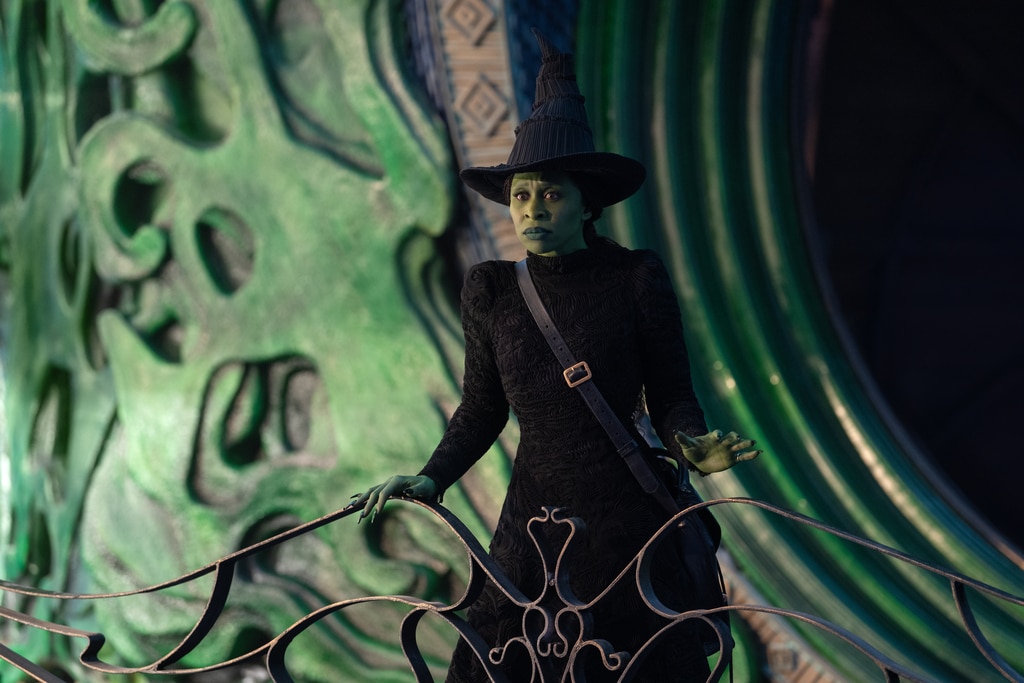
When Doctor Dillamond is fired from Shiz University, a new professor arrives and demonstrates new animal cages, using a distressed lion cub as an example. This enrages Elphaba. In the stage version, she causes chaos, allowing her and Fiyero to free the cub and bring it to safety. The movie adaptation shows Elphaba using poppies to put everyone to sleep – a nod to the classic 1939 film The Wizard of Oz, where Dorothy and her companions famously fall asleep in a poppy field.
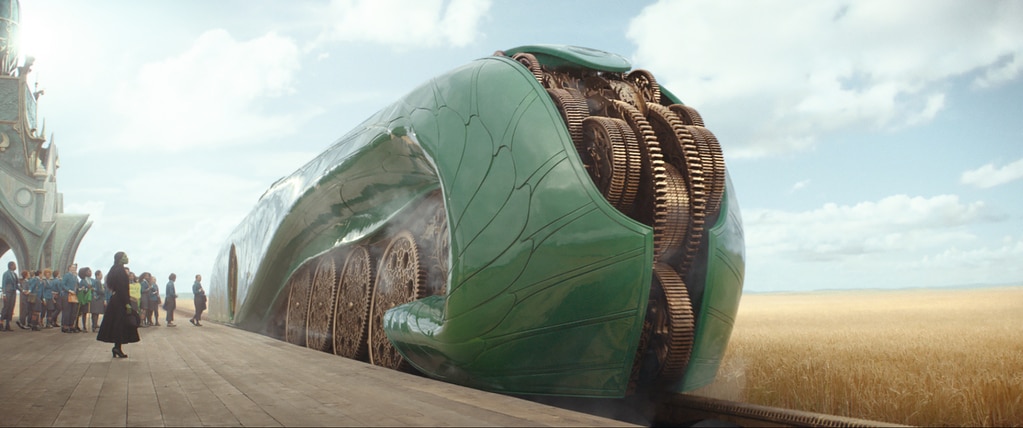
There’s a minor difference between the movie and the musical when Elphaba leaves to see the Wizard. In the film, her father appears at the train station and meets Boq, thanks to an introduction by Nessarose. This scene doesn’t happen in the stage version; her father isn’t there to say goodbye.
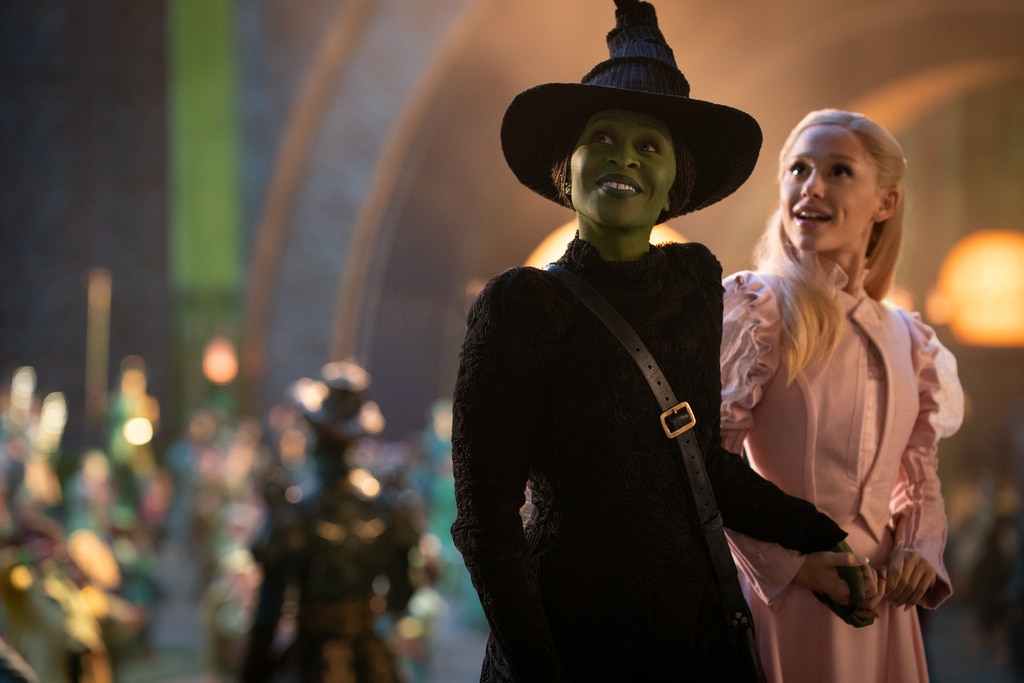
The film expands on the history of the Grimmerie, an old spellbook written in a language no one in present-day Oz understands. Though it doesn’t include any completely new songs, a new part has been added to the song “One Short Day.” The extended cut of the movie deepens the legend of the Wizard, suggesting he’s the only one who can read the Grimmerie and fulfill an Ozian prophecy. However, we later discover this isn’t true – he can’t read it, but Elphaba can.
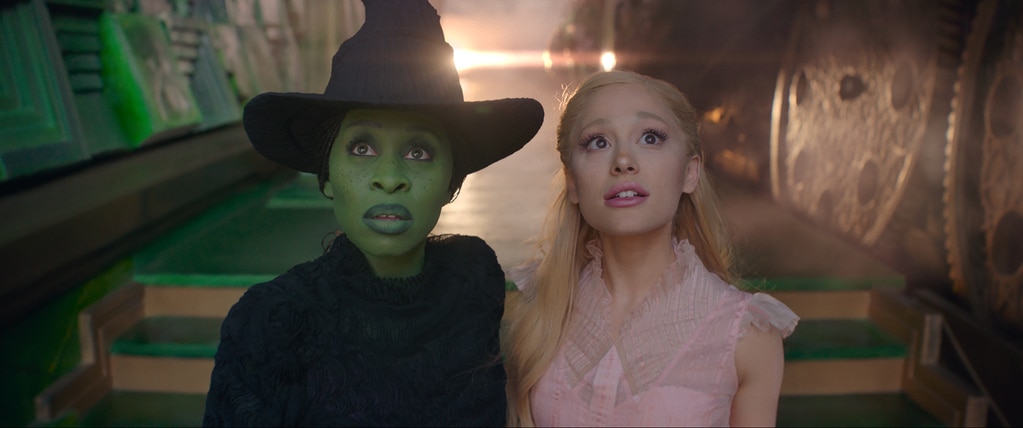
“One Short Day” underwent the biggest changes going from the stage to the movie, and it includes a special treat for fans. The film version features a new performance by original Broadway stars Idina Menzel and Kristin Chenoweth, who played Elphaba and Glinda. Credited as Wiz-O-Mania Super Stars, they play characters not found in the stage show and share a scene with Cynthia Erivo and Ariana Grande in the Emerald City, giving musical fans an extra dose of familiar faces.
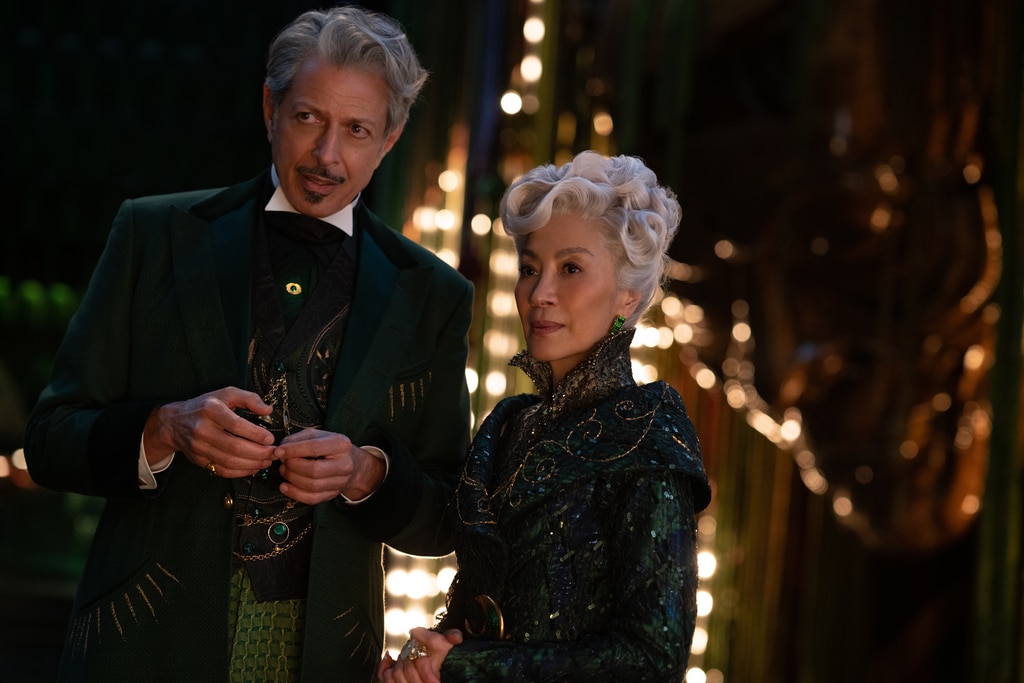
In both the stage and film versions of Wicked, the Wizard initially impresses Elphaba and Glinda. In the movie, he uses a large model of Oz to do so, explaining his plan to build a road to the Emerald City. He even asks Elphaba and Glinda to choose the road’s color, which ultimately results in the creation of the famous Yellow Brick Road.
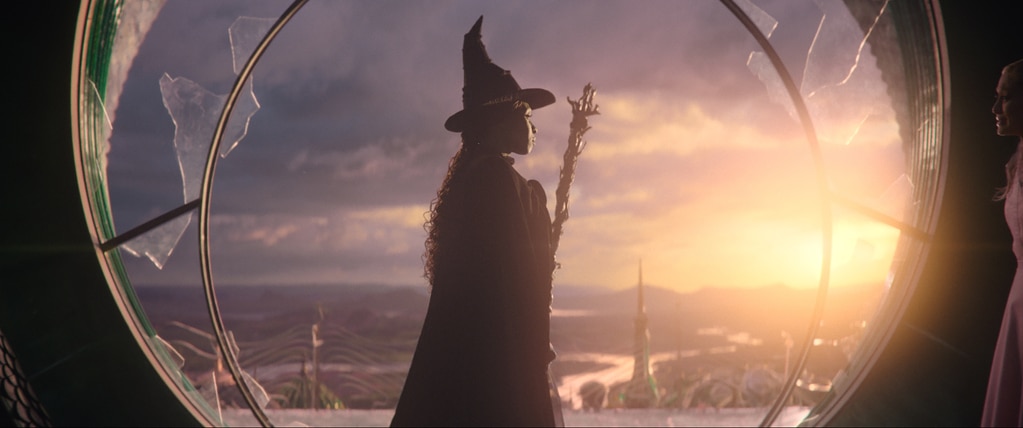
As a huge fan, I noticed the climax of Act One, and the overall ending, stayed pretty true to the stage show. However, they really expanded Elphaba’s big song in the movie! They added this incredibly moving moment where she sees a vision of her younger self, which honestly gave me chills. It’s what finally pushes her to take off and leave Oz, to forge her own path away from the Wizard and Glinda. That flashback is something the stage version never had, and I thought it was a brilliant addition.
Read More
- Sony Removes Resident Evil Copy Ebola Village Trailer from YouTube
- Ashes of Creation Rogue Guide for Beginners
- Best Controller Settings for ARC Raiders
- Can You Visit Casino Sites While Using a VPN?
- One Piece Just Confirmed Elbaph’s Next King, And He Will Be Even Better Than Harald
- Michael B. Jordan Almost Changed His Name Due to NBA’s Michael Jordan
- The Night Manager season 2 episode 3 first-look clip sees steamy tension between Jonathan Pine and a new love interest
- Lies of P 2 Team is “Fully Focused” on Development, But NEOWIZ Isn’t Sharing Specifics
- Crunchyroll Confirms Packed Dub Lineup for January 2026
- AKIBA LOST launches September 17
2025-11-26 19:18